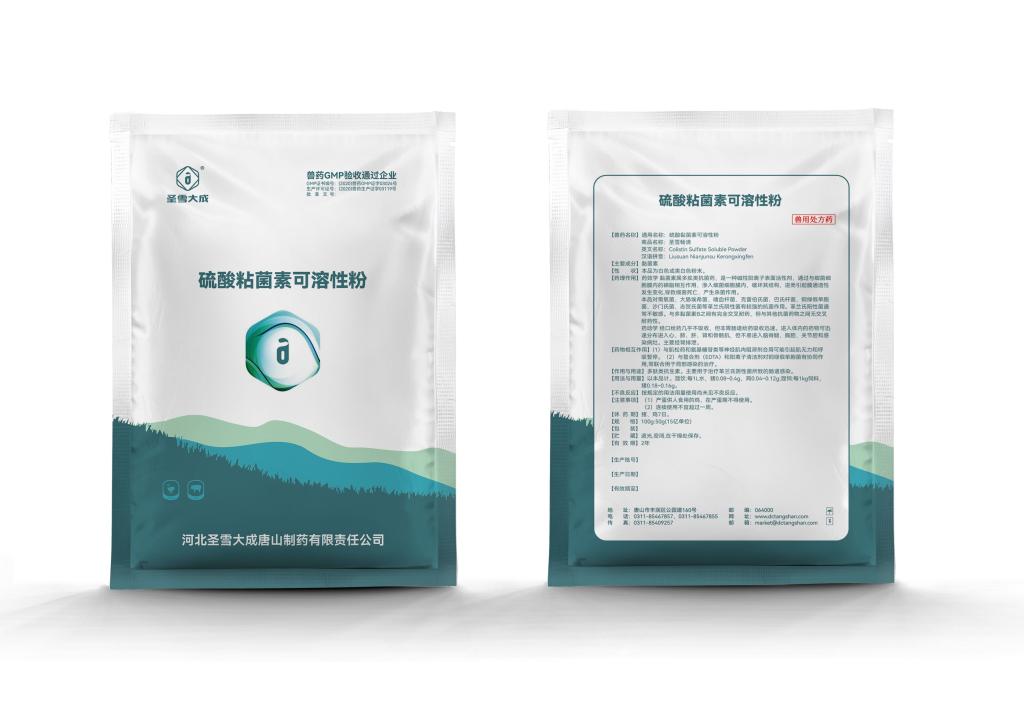Tel:+8618231198596

News
 CONTACT
CONTACT
 CONTACT
CONTACT
- Linkman:Linda Yao
- Tel: +8618231198596
- Email:linda.yao@dcpharma.cn
- Linkman:CHARLES.WANG
- Department:Overseas
- Tel: 0086 0311-85537378 0086 0311-85539701
News
Current Position:
Home >
News
>Adapting to Change: Colistin Sulfate Soluble Powder in Evolving Livestock Practices.
Adapting to Change: Colistin Sulfate Soluble Powder in Evolving Livestock Practices.
TIME:2024-01-17
Evolving Livestock Practices
Intensification and Efficiency: Modern livestock practices often involve intensification to meet the growing demand for animal products. This includes practices such as concentrated animal feeding operations (CAFOs), where large numbers of animals are housed in a confined space. The aim is to achieve higher efficiency in resource use and production.
Animal Welfare Considerations: Evolving societal attitudes towards animal welfare have led to a greater focus on humane and ethical treatment of animals. Consumers are increasingly concerned about the conditions in which livestock are raised, leading to a push for more sustainable and animal-friendly farming practices.
Sustainable Agriculture: The global push for sustainability has permeated the agriculture sector. Livestock farmers are exploring ways to reduce environmental impact, minimize resource use, and adopt practices that support long-term ecological balance.
The Role of Colistin Sulfate Soluble Powder in Livestock Management
Disease Management: Colistin Sulfate Soluble Powder has been a staple in livestock management for its effectiveness in treating bacterial infections. In intensively managed settings, where animals are in close proximity, the risk of disease transmission is higher, making disease management a critical aspect of modern livestock practices.
Growth Promotion: Beyond its therapeutic use, Colistin Sulfate is also known for its growth-promoting effects in livestock. This has been a key factor contributing to its widespread use in some agricultural settings, as farmers seek to maximize the productivity of their animals.
Antibiotic Resistance Concerns: The use of antibiotics, including Colistin Sulfate, has raised concerns about the development of antibiotic-resistant bacteria. The evolving landscape of livestock practices necessitates a careful examination of the impact of these practices on public health and the environment.
Adapting to Change: Challenges and Opportunities
Responsible Use Practices: Adapting to changing livestock practices requires a commitment to responsible use of veterinary medications, including Colistin Sulfate. Farmers and livestock managers must adhere to proper dosage regimens, veterinary oversight, and withdrawal periods to minimize the risk of antibiotic resistance.
Alternatives and Innovations: The evolving landscape provides an opportunity to explore alternative approaches to livestock management. Research and innovation in areas such as probiotics, prebiotics, and non-antibiotic growth promoters can offer sustainable alternatives to Colistin Sulfate.
Consumer Education: As consumer preferences shift towards ethically raised and sustainably produced food, there is a need for education and transparency. Farmers can engage with consumers to communicate their practices, including the use of Colistin Sulfate, and address concerns related to antibiotic residues in food products.
Regulatory Frameworks: Adapting to change requires a supportive regulatory framework that encourages responsible practices. Policymakers play a crucial role in developing guidelines that balance the need for disease management with the imperative to minimize antibiotic resistance.
Conclusion
Adapting to change in livestock practices, including the use of Colistin Sulfate Soluble Powder, is a multifaceted challenge that demands collaboration between farmers, researchers, policymakers, and consumers. As the agricultural landscape continues to evolve, a proactive and responsible approach to the use of veterinary medications is essential. By embracing alternatives, fostering innovation, and engaging in open communication, the livestock industry can navigate these changes while ensuring the health and well-being of animals, the sustainability of farming practices, and the satisfaction of consumers.
- Tel:+8618231198596
- Whatsapp:18231198596
- Chat With Skype







